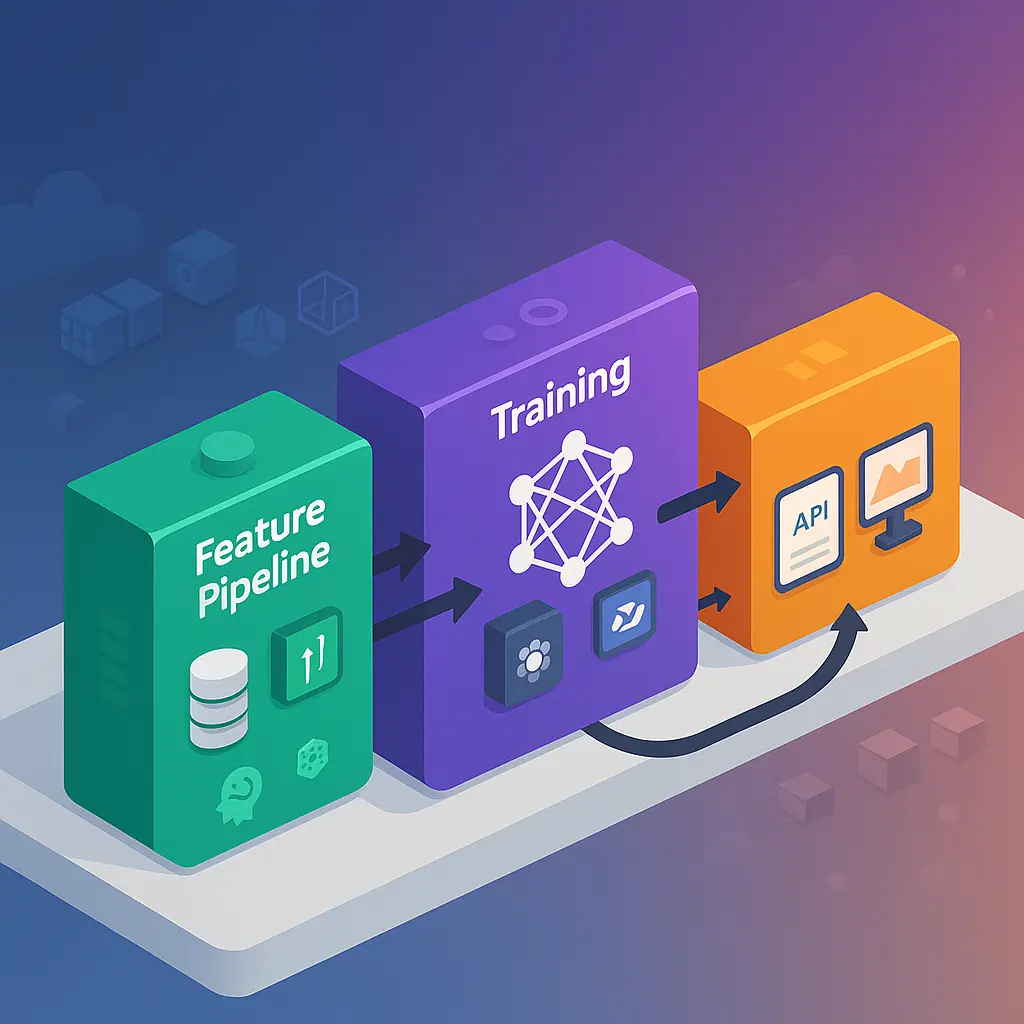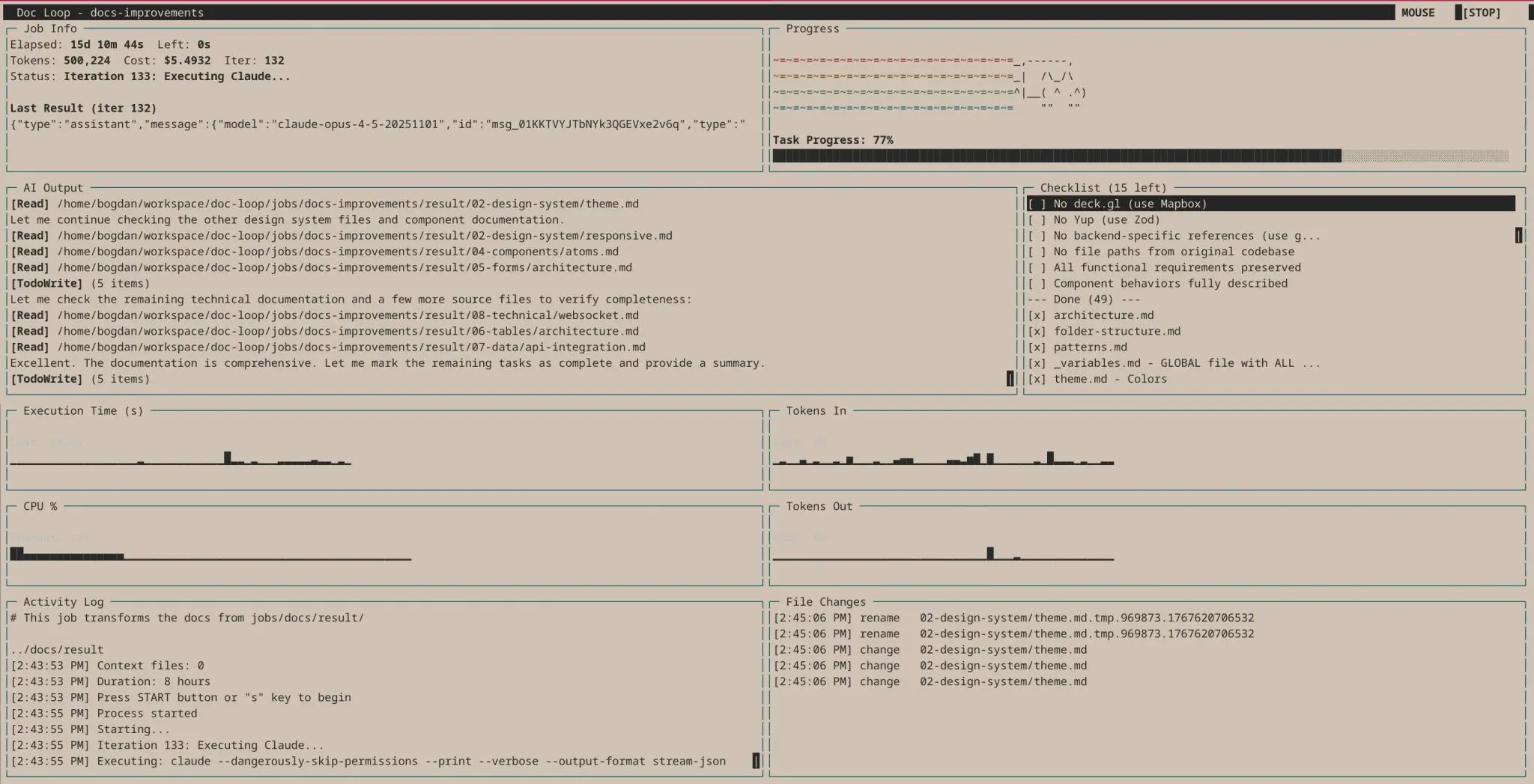
What is AI Native and why should I care?
Learn to navigate the Cloud Native to AI Native transition. Avoid common mistake…

As enterprises embrace AI Native architectures, they face a fundamental challenge:
How do you scale AI effectively while keeping your teams focused on high-value business logic and model development?
AI development today mirrors the early days of DevOps, where infrastructure scaling and automation were separated from application development. In this new AI era, platform operations should be streamlined so that in-house teams focus on business logic, application coding, and model training.
That’s where the Leverage, Optimize, Own framework comes in.
At its core, AI Native strategy isn’t just about technology, it’s about aligning AI investments with business focus. AI-driven enterprises must carefully decide where to invest resources and where to lean on existing solutions and expertise.
Let’s break this down.
| Leverage (Existing AI Infrastructure & Services) | Optimize (Refine for Your Business Needs) | Own (Business Logic & AI Competitive Edge) | |
|---|---|---|---|
| AI Models | Foundational AI models (DeepSeek, ChatGPT, Llama, Claude) | Fine-tuned LLMs for specific domain expertise | Custom models trained on proprietary datasets |
| Model Hosting & Serving | AIaaS (Amazon Bedrock, Azure OpenAI, Hugging Face Inference API, DataCrunch) | Self-hosted inference for cost efficiency | Fully owned AI pipelines, edge deployments |
| MLOps & AI Tooling | Managed ML platforms (AWS SageMaker, Vertex AI) | Hybrid workflows (MLflow, Kubeflow, Weights & Biases) | Custom AI pipelines & observability solutions |
| Data Pipelines | Prebuilt data connectors, managed feature stores | Custom data transformation pipelines | Proprietary data strategy for AI learning |
| Platform Operations & Scaling | Consulting partners for AI infrastructure & cloud/on-prem deployment | In-house engineering team learns best practices | Fully autonomous AI operations team |
| Application & AI Integration | AI-powered APIs & third-party AI services | Enterprise-specific AI logic & workflows | Custom AI-powered applications & interfaces |
At the core of AI-driven enterprises is business logic and application development. Your AI team should own:
This is where your data scientists, AI engineers, and software developers bring unique value to your business.
Even if your company specializes in AI, it’s inefficient to build everything from scratch. Instead, optimize prebuilt AI tooling to fit your workflows:
Your team should focus on integrating these tools into business workflows, rather than maintaining infrastructure.
To avoid unnecessary complexity, leverage managed AI platforms, consulting firms, and prebuilt AI tools for:
This is where external consultants add the most value. Just like DevOps in its early days, AI infrastructure is complex, and in-house teams shouldn’t waste time solving problems that have already been solved at scale.
The first year of AI deployment is critical for enterprises. Building and Scaling AI platforms requires expertise in various areas such as Data Infrastructure, Data Engineering and Cloud Integration
re:cinq's role is to bridge the gap between data science and software engineering, creating a robust and efficient platform that empowers data scientists to focus on their core work. Key Consulting Focus Areas:
By year two, enterprises should have the tools and internal knowledge to run AI operations independently but consultants help accelerate the journey, ensuring sustainability from day one.
Scaling AI goes beyond just training a model, it requires robust platform operations.
The complexity of AI implementation means enterprises must strategically decide what to outsource, optimize, and build in-house, leveraging external expertise where needed while focusing internal talent on business logic & AI innovation.
| Leverage (Consultants, SaaS, Managed AI) | Optimize (Refine & Integrate) | Own (Build In-House) | |
|---|---|---|---|
| GPU Scaling & Cost Management | Rent cloud GPUs (AWS, Google, Azure, DataCrunch, Lambda Labs) | Optimize workload distribution & right-size instances | Own a GPU cluster for maximum control |
| MLOps Pipelines & Observability | Managed MLOps platforms (SageMaker, Vertex AI) | Customize MLflow/Kubeflow to business workflows | Full in-house AI observability platform |
| On-Prem AI Deployments | Consulting firms manage networking & security | Internal team learns hybrid cloud integration | Fully owned AI infrastructure & operations |
| Real-Time Inference Scaling | Use AIaaS APIs (OpenAI, Hugging Face) | Deploy containerized inference workloads | Build custom AI inference stack |
| Data Strategy & Governance | Prebuilt data pipelines & managed feature stores | Refine pipelines for AI learning & compliance | Own end-to-end AI data governance |
Leverage: Foundational AI infrastructure, consulting for AI scaling & MLOps.
Optimize: AI tools & models to fit business workflows.
Own: Proprietary AI models, application development, and business logic.
By applying this model, enterprises gain agility in early AI adoption, optimize AI tooling for efficiency, and secure long-term competitive advantage through AI differentiation.
Your AI team should focus on training models, fine-tuning AI logic, and integrating AI into business applications, not struggling with infrastructure scaling.
At re:cinq, we guide organizations through every stage of AI adoption from leveraging AIaaS to optimizing AI workflows and owning AI infrastructure.
Let’s discuss how we can help you build a scalable, secure, and cost-effective AI Native platform. Sign up for our next AI Native workshop.
Let's discuss how we can help you build a scalable, secure, and cost-effective AI Native platform. Sign up for our next AI Native workshop.

Learn to navigate the Cloud Native to AI Native transition. Avoid common mistake…

A checklist-driven while(true) loop that uses an LLM to chew through documentati…

How I built a fun conference booth experience combining an open-source robot, vi…
Get a shared vocabulary of proven Transformation Patterns, common Anti-Patterns, and Paradigm Patterns to have more effective, data-driven conversations about your strategy and architecture.
For a personalized starting point, take our free online assessment. Your results will give you a detailed report on your current maturity and suggest the most relevant patterns to focus on first.
Every Tuesday, we deliver one short, powerful read on AI Native to help you lead better, adapt faster, and build smarter—based on decades of experience helping teams transform for real.